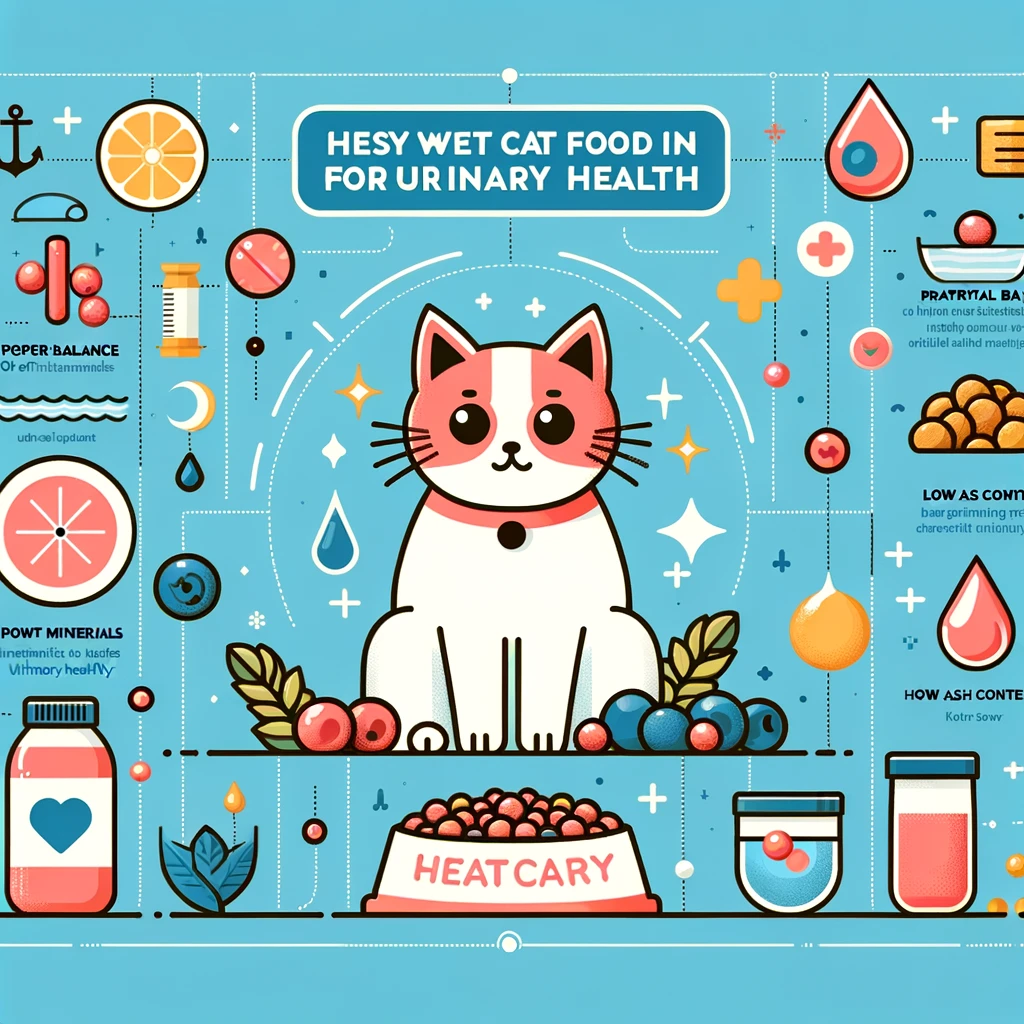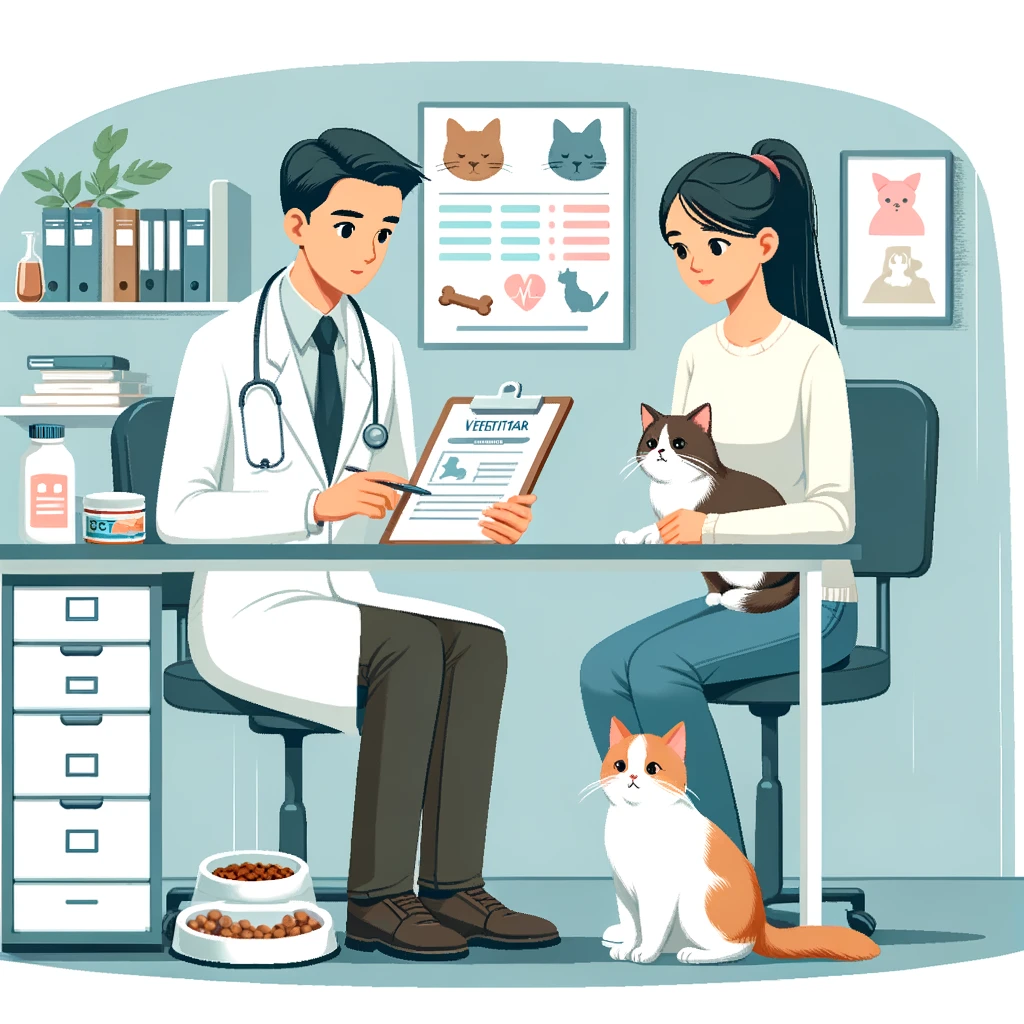Introduction
Urinary health is a pivotal aspect of a cat’s overall well-being. Given their susceptibility to urinary tract issues, such as Feline Lower Urinary Tract Diseases (FLUTD), cat owners must pay close attention to their pets’ diets. This article aims to delve into the best wet cat food options designed to support urinary health, highlighting the importance of diet in maintaining urinary tract wellness.
Understanding Cat Urinary Health
The feline urinary tract comprises the kidneys, ureters, bladder, and urethra, working together to eliminate waste and maintain hydration balance. Proper functioning of this system is vital for a cat’s health.
Common Urinary Health Issues
- FLUTD: An umbrella term covering various conditions affecting the bladder and urethra.
- Symptoms: Difficulty urinating, blood in urine, and frequent urination.
- Causes: Can range from urinary stones and infections to stress and diet.
The Significance of Hydration
Hydration plays a crucial role in urinary health, helping to flush out toxins and prevent crystal formation. Cats naturally have a low thirst drive, making wet food an essential part of their diet to increase fluid intake.
Why Wet Food?

Benefits for Urinary Health
Wet cat food’s high moisture content is its biggest advantage for urinary health, aiding in:
- Preventing Dehydration: Essential for cats prone to urinary tract issues.
- Reducing the Risk of FLUTD: Adequate hydration helps dilute urine, reducing the risk of crystal and stone formation.
Wet vs. Dry Food
While dry food may be convenient, it lacks the moisture content of wet food, which is crucial for cats with urinary health concerns. Wet food not only provides hydration but is often more palatable, encouraging increased intake.
Key Nutritional Factors in Wet Cat Food for Urinary Health

The right balance of nutrients in wet cat food can significantly impact urinary health. Here are essential factors to consider:
Proper Balance of Minerals
Minerals like magnesium, phosphorus, and calcium are crucial but must be carefully balanced to prevent the formation of urinary crystals and stones.
- Magnesium and Phosphorus: Look for foods with controlled levels to reduce the risk of struvite stone formation.
- Calcium: While essential, too much calcium can lead to calcium oxalate stones.
Low Ash Content
“Ash” refers to the total mineral content of the food, which, when excreted, can affect the urinary pH balance.
- Ideal Levels: Foods with lower ash content are generally better for urinary health, helping maintain a neutral pH that discourages crystal formation.
Ingredients that Promote Urinary Health
Some foods include ingredients specifically beneficial for the urinary tract:
- Cranberries: Thought to help prevent urinary tract infections (UTIs) by making the bladder lining less adhesive to bacteria.
- Glucosamine and Chondroitin: These supplements may help protect the bladder lining.
Top Wet Cat Food Brands for Urinary Health
Several wet cat food brands formulate products with urinary health in mind. Here’s a list of recommended brands and their key benefits:
- Royal Canin Urinary SO: Specifically designed to dissolve struvite stones and prevent recurrence.
- Hill’s Prescription Diet c/d Multicare: Clinically tested to reduce the recurrence of most common urinary tract disease symptoms.
- Purina Pro Plan UR Urinary St/Ox: Helps promote urinary tract health with balanced minerals and reduces the risk of stone formation.
- Blue Buffalo Natural Veterinary Diet W+U: Offers weight management alongside urinary care, with controlled mineral levels.
| Brand | Key Benefit | Mineral Balance |
|---|---|---|
| Royal Canin Urinary SO | Dissolves struvite stones | Controlled |
| Hill’s Prescription Diet c/d Multicare | Reduces symptom recurrence | Balanced |
| Purina Pro Plan UR Urinary St/Ox | Promotes urinary health | Managed |
| Blue Buffalo Natural Veterinary Diet W+U | Weight management and urinary care | Controlled |
Each of these products is formulated to address specific urinary health concerns, but it’s essential to choose one that aligns with your cat’s particular needs and to consult with a veterinarian before making any dietary changes.
Feeding Guidelines for Cats with Urinary Health Issues
Proper feeding practices are crucial for cats with urinary health concerns. Here’s how to ensure your cat gets the most benefit from their diet:
Frequency and Portion Sizes
- Multiple Small Meals: Feeding your cat small, frequent meals can help maintain a stable pH level in the urine, which is beneficial for urinary health.
- Portion Control: Follow the feeding guidelines on the cat food packaging or consult with your veterinarian to determine the right portion size based on your cat’s weight and health needs.
Consistency
- Stick to the Diet: Once you find a wet food that supports your cat’s urinary health, consistency is key. Frequent changes in diet can upset your cat’s digestive system and affect urinary pH balance.
Transitioning Foods
- Gradual Change: If you need to switch to a new food, introduce it slowly over a week to allow your cat’s digestive system to adjust. Start with a mix of 75% old food and 25% new food, gradually increasing the amount of new food.
Encouraging Water Intake
Hydration plays a vital role in preventing urinary tract issues.
Fresh Water Availability
- Clean Water: Change the water daily to ensure it’s fresh and appealing.
Enhancing Water Attractiveness
- Water Fountains: Many cats prefer running water. A cat water fountain can stimulate interest in drinking.
- Flavoring Water: Adding a little tuna juice or chicken broth to the water (make sure it’s onion- and garlic-free) can make it more enticing. Use this sparingly to avoid excess sodium intake.
Wet Food as a Water Source
- Remember, wet cat food contributes to your cat’s overall hydration due to its high moisture content, complementing their water intake.
When to Consult a Veterinarian

While diet plays a crucial role in managing and preventing urinary health issues, professional veterinary advice is indispensable. Here’s when to seek a vet’s help:
Recognizing the Signs
- Difficulty Urinating: Straining, frequent attempts with little output, or any signs of pain.
- Blood in Urine: Any discoloration or blood spots.
- Behavioral Changes: Increased licking of the urinary opening, lethargy, or sudden changes in bathroom habits.
The Value of Professional Diagnosis
- A vet can determine the specific cause of urinary issues, whether it’s an infection, crystals, stones, or another underlying condition, ensuring the most effective treatment plan.
- Dietary recommendations can be tailored based on the cat’s specific needs, health status, and any existing conditions.
Conclusion: Nourishing Your Cat Towards Urinary Health
Maintaining your cat’s urinary health requires a multifaceted approach, combining the right diet, adequate hydration, and attentive care. Wet cat food, especially formulas designed for urinary health, plays a vital role in this strategy by providing essential nutrients and the moisture content needed to support a healthy urinary system.
Key Takeaways
- Diet Matters: Choosing wet cat food with the right balance of minerals and nutrients can help prevent common urinary tract issues.
- Hydration is Key: Encourage water intake to promote urinary health, alongside feeding wet food.
- Monitor and Consult: Keep an eye on your cat’s urinary habits and consult a veterinarian at any sign of trouble.
Final Thoughts
As cat owners, our goal is to provide our pets with a life full of happiness and health. By selecting the best wet cat food for urinary health, ensuring they stay hydrated, and seeking veterinary care when needed, we can support our feline friends in leading a comfortable and healthy life.
Call to Action
If you’ve found this guide helpful or have experiences and tips to share about managing your cat’s urinary health, we encourage you to share this article and join the conversation. Together, we can create a supportive community of informed and caring cat owners.
- Share Your Story: Your experience could provide invaluable insights to fellow cat owners facing similar challenges.
- Stay Informed: For more tips on cat health and nutrition, follow us on social media and subscribe to our newsletter.
Caring for a cat with urinary health issues can be challenging, but with the right knowledge and resources, it’s a journey that you and your cat can navigate successfully. Here’s to the health and happiness of our feline friends!

